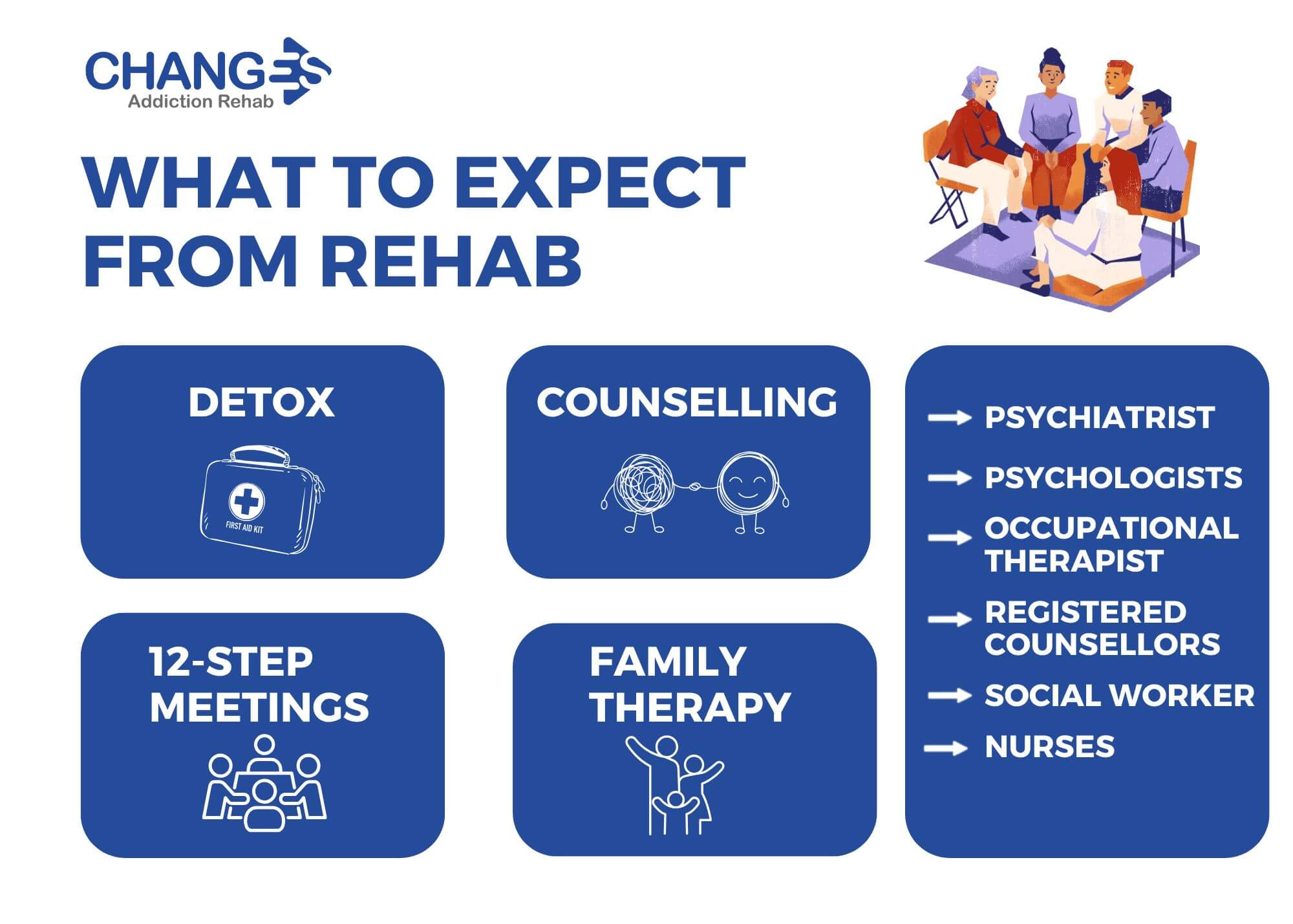A Comprehensive Guide to Substance Abuse Rehabilitation
Substance Abuse rehabilitation, commonly referred to as rehabilitation, is an organized process made to assist people conquer dependancy on drugs, alcohol, or other habit forming substances. It is not just about cleansing-- it is a trip of mental, emotional, and physical makeover. Rehab facilities give safe atmospheres where people can confront the source of their addiction, address mental triggers, and find out coping mechanisms to endure long-term sobriety. This process is assisted by trained professionals, consisting of specialists, clinical doctors, and counselors who comprehend the intricate nature of addiction as both a physiological and behavioral problem.
Understanding the Core of Substance Abuse Abuse Rehabilitation
At its core, rehab has to do with rebuilding a person's life. Addiction usually leaves behind deep scars-- strained connections, economic distress, illness, and mental illness. With detailed rehabilitation programs, people are provided the devices to fix these aspects gradually. Rehab isn't almost avoiding compounds; it's regarding redeeming control and discovering one's feeling of self-regard. The programs stress framework, uniformity, and individual liability, which are vital to lasting recuperation success. Every little turning point during rehab acts as a foundation for lasting soberness.
Substance Abuse Abuse rehab is not a one-size-fits-all technique. It acknowledges that everyone's addiction story is unique-- what led to Substance Abuse abuse, how it progressed, and exactly how recuperation can be continual differ widely. Treatment facilities personalize care plans based on private assessments, making sure that every person receives support that aligns with their mental state, addiction history, and life circumstances. This personalized technique substantially improves recuperation end results and assists stop regression once individuals rehabilitate right into daily life.
The Benefits of Inpatient Rehabilitation Programs
Inpatient rehabilitation, likewise called domestic treatment, supplies one of one of the most reliable strategies for those battling serious Substance Abuse dependency. One of its main advantages is the organized and distraction-free setting. When an individual enters an inpatient facility, they are briefly removed from exterior triggers-- such as buddies who make use of compounds, difficult work environments, or household disputes-- that could prevent their recovery. This seclusion from adverse influences permits people to concentrate entirely on recovery. Living within a monitored and helpful setup produces the stability required to damage old behaviors and create healthier patterns of habits.
An additional major advantage of inpatient rehab is the 24/7 specialist supervision available to every client. Withdrawal signs and symptoms from medications or alcohol can be unpredictable and, in some instances, dangerous. Inpatient centers have medical teams that give day-and-night care, making sure individuals are secure and comfortable throughout cleansing. Beyond physical health and wellness, constant guidance additionally uses psychological reassurance-- clients recognize that assistance is readily available at any moment, which minimizes stress and anxiety and builds trust fund in the recuperation procedure. This immediate accessibility to emotional and clinical support considerably improves the success rate compared to outpatient treatment for serious addictions.
Inpatient rehab programs cultivate a solid sense of area and liability. People engage with others who share comparable struggles, get involved in group treatment, and engage in activities that motivate team effort and empathy. This environment nurtures shared understanding and reduces feelings of seclusion frequently connected with dependency. By getting in touch with peers and gaining from their experiences, people establish social bonds that remain to support them also after leaving the center. This sense of belonging, incorporated with constant specialist support, makes inpatient rehabilitation a highly reliable structure for sustainable recuperation.
Inpatient Rehabilitation Solutions Used
Inpatient rehab centers supply a diverse series of services developed to treat the body, spirit, and mind simultaneously. The initial stage typically includes medical detoxing, a process that safely removes compounds from the body while taking care of withdrawal symptoms. Detoxification is managed by doctor who might provide medication to alleviate pain and prevent difficulties. Once detox is complete, clients shift to structured day-to-day programs that include wellness, therapy, and counseling activities. This integrated method guarantees that clients not only get over physical reliance however also address emotional and psychological facets of dependency.
Therapeutic solutions go to the heart of inpatient rehab. Facilities deal individual therapy sessions, where people work one-on-one with qualified therapists to uncover the underlying root causes of their addiction-- such as injury, psychological health problems, or unsettled psychological pain. Cognitive-behavioral treatment (CBT), dialectical habits treatment (DBT), and inspirational interviewing are amongst the most usual evidence-based methods made use of. In addition, team therapy sessions give a helpful room for clients to share experiences, gain viewpoint, and establish social skills. Family members treatment is also often included, aiding to rebuild depend on and improve communication in between clients and their loved ones.
Beyond standard therapy, lots of inpatient programs include leisure and holistic services to advertise total wellness - rehab near Chester NJ. Yoga exercise, meditation, art therapy, and health and fitness programs help in reducing stress and instruct mindfulness. Nutritional therapy makes certain that patients reconstruct physical health and wellness, as Substance Abuse usually depletes the body's vital nutrients. Some rehabilitation focuses also offer employment training and academic workshops to aid people prepare for reintegration into society. These diverse services are developed to heal the whole person-- not just go to this web-site treat addiction signs-- by promoting purpose, balance, and resilience
Why You Have To Take Into Consideration Outpatient Programs
While inpatient rehabilitation uses an immersive and intensive method, outpatient programs offer an alternative that allows adaptability for people that can not dedicate to full-time residential therapy. Outpatient rehabilitation allows clients to receive organized treatment and medical support while keeping their everyday obligations-- such as household, work, or college treatment. For many people with moderate to moderate dependency, outpatient treatment supplies the best balance in between recovery and day-to-day life. It enables patients to exercise the coping skills they find out in real-world atmospheres, reinforcing their durability in the face of everyday challenges.
One more reason to think about outpatient programs is their cost-effectiveness. Inpatient care can be costly due to lodging, meals, and 24-hour guidance, which might not be monetarily feasible for everyone. Outpatient programs, nonetheless, generally set you back much less since they do not need domestic keeps. Many centers offer sliding-scale repayment alternatives or accept insurance policy to make therapy obtainable. For those who have actually already finished inpatient rehabilitation, transitioning right into an outpatient program functions as a beneficial continuum of care, assisting maintain accountability and stop relapse through ongoing assistance.
Additionally, outpatient programs offer a high level of personalization. Patients can choose between partial a hospital stay programs (PHP), extensive outpatient programs (IOP), or basic outpatient care, depending upon their level of requirement. Each choice gives differing degrees of structure and time dedication. As an example, IOPs normally involve a number of therapy sessions per week, while standard outpatient care may include once a week counseling brows through. This versatility ensures that patients can receive expert assistance tailored to their healing stage, making outpatient programs a sensible and encouraging selection for lasting recuperation maintenance.

Checking Out Other Therapy Options basically Abuse Healing
Beyond outpatient and inpatient rehabilitation, there are Home Page a number of various other treatment choices readily available for individuals looking for recuperation from Substance Abuse dependency (substance abuse treatment Morris County). Medication-assisted therapy (MAT) is one such approach, integrating suggested medicines with behavior therapy to handle withdrawal signs and symptoms and decrease food cravings. Medicines like methadone, buprenorphine, or naltrexone are usually utilized in opioid addiction treatment, while acamprosate or disulfiram might sustain alcohol recuperation. MAT helps stabilize brain chemistry, permitting people to concentrate on treatment and way of life adjustments without the overwhelming pain of withdrawal

Alternative therapies are also becoming progressively prominent basically Abuse treatment. These may consist of all natural techniques like acupuncture, equine treatment, adventure-based therapy, and spiritual healing programs. While these approaches might not replace typical therapy, they can enhance it by enhancing psychological guideline, self-awareness, and confidence. The goal of exploring various treatment alternatives is to produce a healing plan that reverberates with each person's values, ideas, and lifestyle. A tailored combination of treatments usually generates the most lasting results, encouraging people to live a satisfying, substance-free life.
The Course to Long-Term Sobriety and Recovery
Finishing rehabilitation-- whether inpatient or outpatient-- is only the start of a lifelong recovery journey. Aftercare programs play an essential function in preserving sobriety and protecting against regression. These programs may consist of continuous therapy, assistance teams like Narcotics Anonymous or Alcoholics Anonymous, and sober living plans that supply continued structure. Uniformity and community are essential; people who remain connected to recuperation networks are extra most likely to sustain lasting development. Rehabilitation educates the necessary coping skills, however aftercare ensures that those skills are applied and enhanced in real-life scenarios.
Lasting recuperation additionally relies on lifestyle modifications that sustain physical and mental wellness. Establishing healthy habits-- such as regular exercise, balanced nutrition, and mindfulness practices-- aids recover balance to the mind and body. Involving in purposeful activities like volunteering, seeking pastimes, or reconnecting with loved ones can fill up the psychological gap left by Substance Abuse usage. Establishing a favorable state of mind and focusing on future objectives provide recouping people a restored feeling of identification and instructions. Sobriety is not concerning deprivation; it's concerning recovering life's richness and possibilities.

With extensive rehabilitation programs, people are provided the devices to fix these aspects slowly. Inpatient rehabilitation programs foster a strong sense of neighborhood and accountability. While inpatient rehabilitation supplies an immersive and intensive approach, outpatient programs provide an alternative that allows flexibility for people who can not dedicate to permanent residential therapy. Outpatient rehabilitation allows clients to get organized therapy and clinical support while keeping their daily obligations-- such as institution, job, or household care. Past outpatient and inpatient rehabilitation, there are a number of various other treatment choices available for individuals looking for healing from Substance Abuse addiction.